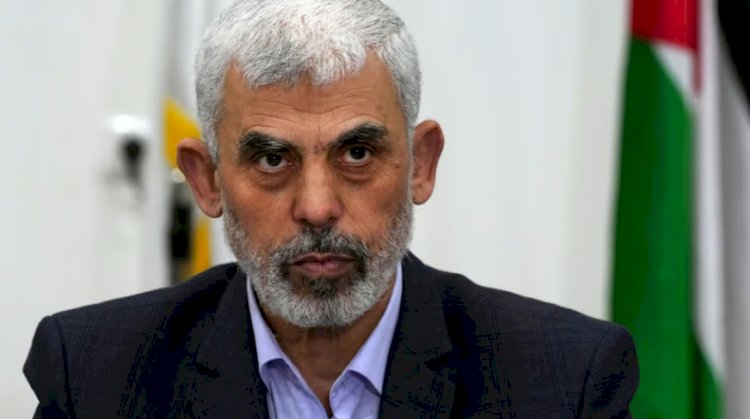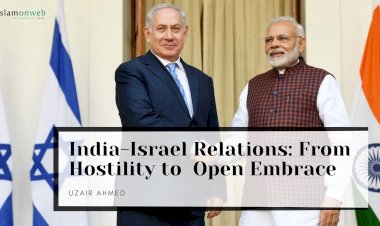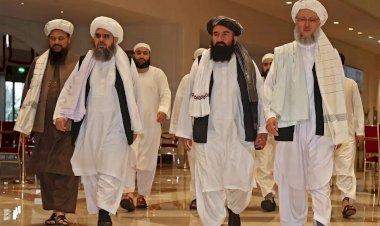Yahya Sinwar as the Leader of Hamas: Strategic Signal to Israel
Yahya Sinwar's appointment as the new leader of Hamas's political bureau following the recent assassination of Ismail Haniyeh in Tehran on July 31, marks a crucial shift in the leadership of Hamas, the Palestinian Resistance Movement.
Yahya Sinwar, born in Khan Younis refugee camp in Gaza in 1962, has been a prominent figure in Hamas for decades. His family were refugees from Majdal Askalan, which later became Ashkelon after the creation of Israel in 1948. Sinwar completed his studies at the Islamic University of Gaza with a BA in Arabic studies. He founded Hamas's security service, Majd, in the late 1980s, which targeted alleged Palestinian collaborators with Israel. Sinwar has a history of imprisonment, having been sentenced to four life terms by Israel after his third arrest in 1988. He was released in a 2011 prisoner exchange involving Israeli soldier Gilad Shalit. In prison, Sinwar quickly rose to prominence among Palestinians. An Israeli government assessment described him as both ruthless and influential. He took advantage of his time in detention to learn Hebrew, becoming fluent enough to give interviews to Israeli journalists in their language. During one interview, he remarked, "Hamas has both political and military bodies, Israel disrespected the political process, they assassinated Sheikh Ahmad Yasin and other Hamas leaders, therefore in case we reach this truce one day, still we won’t be the sweethearts of Zion. And I think the Israelis won’t expect from Hamas to expect them to love the Palestinians.
While imprisoned, Sinwar translated several books and wrote works including "Hamas: Trial and Error," "Glory," which covers the Shabak agency's operations, various security-oriented articles foundational to Hamas's security expertise, and a novel titled "The Clove Thorn," which explores the Palestinian struggle from 1967 to the Intifada. Since 2017, Sinwar has served as the leader of Hamas in the Gaza Strip. His appointment as the leader of the political bureau represents a significant consolidation of his power within the organization.
The selection of Sinwar followed two days of intense negotiations in Doha among Hamas's top leaders. During these discussions, various scenarios were considered, and ultimately, the decision came down to two candidates: Sinwar and Mohammed Hassan Darwish, head of the General Shura Council. The council's unanimous vote in favor of Sinwar highlights a strong internal consensus and a strategic message to external adversaries, particularly Israel.
The announcement of Sinwar's appointment comes at a time of heightened tension in the Middle East. The assassination of Haniyeh has exacerbated regional instability, with Iran and its allies threatening retaliation, which they attribute to Israel. Despite Israel's refusal to comment on the assassination, the implications of the event are far-reaching.
Sinwar's appointment has been framed by Hamas as a defiant response to Israel. Hezbollah has endorsed the decision, viewing it as a symbol of unity and resistance against Israeli and American influence. The group's statement emphasizes Sinwar's deep connection to the Gaza Strip, highlighting his presence on the front lines amid ongoing conflict and humanitarian crises.
The ongoing Israeli military campaign in Gaza has resulted in severe humanitarian consequences. Reports indicate that nearly 40,000 Palestinians have been killed, including many women and children. The conflict has displaced almost the entire population of 2.3 million in Gaza and has led to widespread starvation, health emergencies, and allegations of systematic human rights abuses.
Sinwar’s leadership will likely influence the group's strategies and its approach to the ongoing conflict with Israel. As tensions continue to escalate, the international community will be closely watching the developments in Gaza and the broader implications for regional stability.
Disclaimer
The views expressed in this article are the author’s own and do not necessarily mirror Islamonweb’s editorial stance.
























Leave A Comment